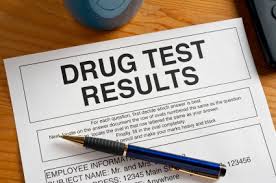Currently, the District of Columbia and 26 states have legalized marijuana to some degree. In addition, there are approximately an additional eight states that will be adding this issue to ballots this November. Keep in mind, this article is for informational purposes only and the author does not take a stand on either side of the issue.
Drug Screening in the Workplace
Employers use drug testing as a tool to hire the best employees, increase productivity and ensure safety in the workplace. According to the Office of National Drug Control Policy, drug abuse cost the United States $120 billion in lost productivity in 2007 alone and additional $11 billion in healthcare related costs.
The legalization of marijuana has thrown a wrench into how the results from the drug tests can be utilized. In states where marijuana has been legalized, employers need to conclude if their organization must adhere to the regulations of The Drug Free Workplace Act. According to the Act, federal contractors are required to maintain a zero tolerance drug policy in the workplace and provide certification of this to the federal government. While the Act does not require that mandatory drug testing is performed by employers, it does require employers to provide employees with written guidelines regarding the zero tolerance policy. Employees are required to read the guidelines and sign a consent form that employment is conditional upon acceptance of the terms set within. If an employee is convicted of a drug offense, they are required to notify the employer within five days of the conviction. Additionally, employers must offer educational programs which provide employees information on the dangers associated with drug abuse. This Act overrides state legalization for federal employees because federal law still prohibits the use of marijuana.
The zero-tolerance policy is not reserved solely for federal contractors. Employers can legally adopt this policy if they oversee employees in “safety-sensitive” positions. A “safety-sensitive” position is one that requires an employee to be responsible for his or her own safety or the safety of others. Examples of this would be any commercially licensed driver or someone who uses heavy machinery as part of their job requirement.
Medical Marijuana
Laws regarding if employers can discriminate against employees who test positive for marijuana use in legal states remain tricky. While the Americans with Disabilities Act (ADA) protects employees from being discriminated against for physical or mental impairments, the ADA does not protect individuals using illegal drugs. Once again, federal and state lines are blurred and because the ADA is a federal program, it does not consider any use of marijuana legal, even in states that have approved its use. ADA guidelines do however state that drugs “taken under supervision by a licensed health care professional or other uses authorized by the Controlled Substances Act or other provision of Federal law” are not considered illegal drugs.
Lawsuits have risen dramatically in states where workers feel they have been wrongfully terminated based on their marijuana use. In Roe v. Teletech Customer Care Mgmt. Roe used marijuana to combat migraine headaches, however, Teletech had a zero-tolerance policy and Roe was terminated when the results of her drug screening showed she tested positive for THC. The Washington Supreme Court sided with Teletech.
Because state and federal laws surrounding medical marijuana are continually evolving, employers are encouraged to seek legal counsel when determining how and when to move forward with any adverse action against an employee who may be protected under these guidelines.
Drug Screening in in 2016 and Beyond
Legalization of medical marijuana has mucked up the waters for employers on how to handle employee drug screening. That does not mean that drug screening practices should be abandoned. Employers can receive reimbursements from insurance companies when drug screening is part of a comprehensive safety program.
Employers are, however, encouraged to keep up on state and local laws when it comes to the legalization of marijuana. Workplace drug screening policies should be reviewed by a knowledgeable attorney to ensure the employer is complying with federal, state and local laws. Also, understand that there is a difference between whether a physician has recommended use of marijuana for a medical need or if the physician has prescribed it.
The professionals at SB Checks are here to help ensure your company is following the proper drug screening procedures. Call (888) 725-2535 today to ask about our available services.


It is an extraordinary site.. The Design looks great.. Continue working like that!.
Great website! I am loving it!! Will be back later to read some more. I am bookmarking your feeds also.
Glad you are enjoying our content.